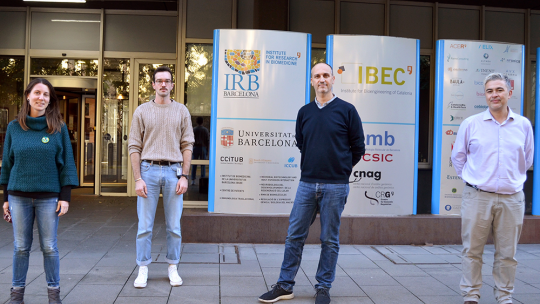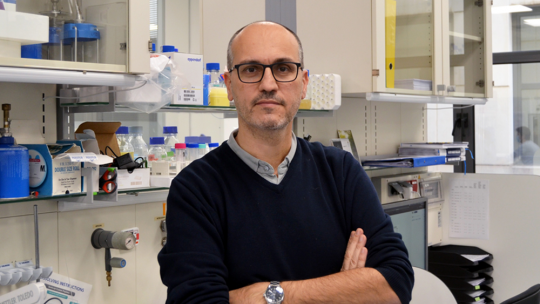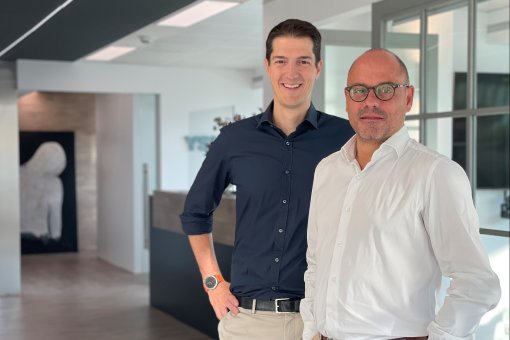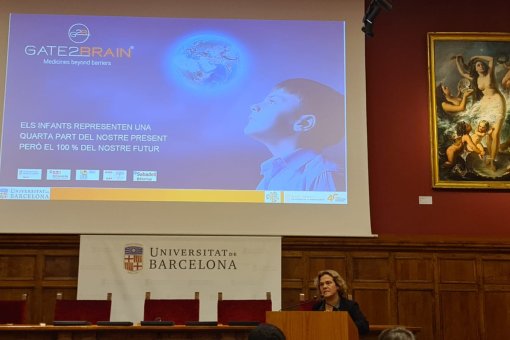Images
Participants




Contact

Xavier Salvatella's laboratory at IRB Barcelona receives €180,000 to develop new drugs against prostate cancer.
The AECC Innova projects are focused on technology transfer and aim to get research results to the patient faster.
One in eight men will be diagnosed with prostate cancer at some point in their lifetime. Several treatments for this type of cancer are currently available, but the tumour develops resistance and the effectiveness of therapy is reduced. Led by ICREA researcher Xavier Salvatella, the Laboratory of Molecular Biophysics at IRB Barcelona has received funding from the Spanish Association Against Cancer (AECC) in the first AECC Innova call to advance the development of a potential new drug against prostate cancer.
Current therapies to treat prostate cancer are based on blocking a protein called androgen receptor, which stimulates tumour proliferation. However, the androgen receptor often loses a fragment, precisely the one that the drug binds to and that allows it to exert its action. Without that fragment, the drug does not "find" the receptor, it cannot exert its action, and the cancer continues to develop.
"We are exploring drugs that can attack the new form of the androgen receptor when it has already detached from this fragment. Thanks to the support of the AECC, we will be able to advance the development of drugs and evaluate their effectiveness in an advanced animal model of prostate cancer," Salvatella explains.
The team behind the project is formed by Mateusz Biesaga (PhD student), Paula Martínez-Cristóbal (postdoctoral researcher), Israel Ramos (Drug discovery expert) and Salvatella himself, principal researcher of the project.
Androgen receptor, testosterone and Kennedy's disease
The androgen receptor is a testosterone sensor, detecting the levels of this hormone and triggering several processes, among them those that result in male traits.
"In addition to prostate cancer, other diseases are associated with the androgen receptor, such as Kennedy's disease, which could also benefit from these advances in androgen receptor-targeted therapies," says Biesaga. Kennedy's disease, which they also study in the laboratory, is a rare condition characterised by a neuromuscular disorder that leads to progressive loss of muscle mass.
Expected to be developed over two years, the AECC Innova project has been awarded €180,000 of funding.
About IRB Barcelona
The Institute for Research in Biomedicine (IRB Barcelona) pursues a society free of disease. To this end, it conducts multidisciplinary research of excellence to cure cancer and other diseases linked to ageing. It establishes technology transfer agreements with the pharmaceutical industry and major hospitals to bring research results closer to society, and organises a range of science outreach activities to engage the public in an open dialogue. IRB Barcelona is an international centre that hosts 400 researchers and more than 30 nationalities. Recognised as a Severo Ochoa Centre of Excellence since 2011, IRB Barcelona is a CERCA centre and member of the Barcelona Institute of Science and Technology (BIST).




